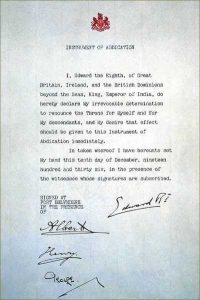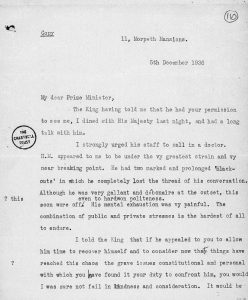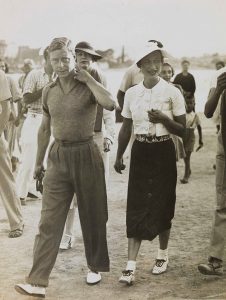
StoryElement
Other voices in the wilderness

Winston Churchill, Parliament Square, London © Sue Lowry & Magellan PR
January 1, 1970
Churchill was undoubtedly the most famous opponent of appeasement but he was not alone.
Whitehall insiders risked the wrath of their political masters to supply him with information on British policy and German rearmament, among them Major Desmond Morton, an expert in industrial intelligence and economic warfare, and Ralph Wigram, head of the Central European department at the Foreign Office.
Anthony Eden and Duff Cooper, Senior Conservative figures, both resigned from the Cabinet in opposition to Chamberlain’s policies, and Lynne Olson, in her book Troublesome Young Men, has highlighted the activities of a rebellious group of Conservative MPs who also agitated against Government policy – Harold Macmillan, Robert Boothby, Leo Amery, Ronald Cartland, and Lord Robert Cranborne among them.
The Labour Party also changed during the 1930s, moving from opposition to rearmament under George Lansbury to criticism of appeasement and calls to oppose fascism under Attlee, Bevin and Dalton.

2024 International Churchill Conference
The debate was of course more complex and nuanced than it has since been presented. Nobody wanted another war, but views differed on how best to prevent one. Churchill always believed in negotiation from a position of strength not weakness, and therefore favoured rearmament and opposed appeasement.
Subscribe
WANT MORE?
Get the Churchill Bulletin delivered to your inbox once a month.




